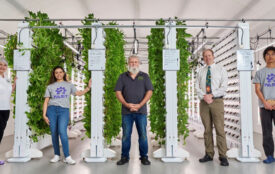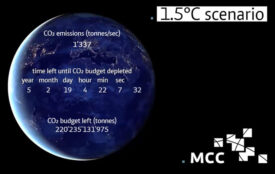States must uphold human rights principles in struggle against violent extremism – Zeid
UN High Commissioner for Human Rights Zeid Ra’ad Al Hussein, in a major speech, warned that the world may be “at a turning point in our young and troubled century,” and urged States not “to lose their grasp” of the human rights principles underlying their societies in their struggle against violent extremism.
“There is real danger that in their reaction to extremist violence, opinion-leaders and decision-makers will lose their grasp of the deeper principles that underpin the system for global security which States built 70 years ago to ward off the horror of war,” the UN Human Rights Chief said.
“The fight against terror is a struggle to uphold the values of democracy and human rights – not undermine them,” Zeid added. “Counter-terrorist operations that are non-specific, disproportionate, brutal and inadequately supervised violate the very norms that we seek to defend. They also risk handing the terrorists a propaganda tool – thus making our societies neither free nor safe,” he said.
The use of torture, neglect of due process and collective punishment do not make the world any safer, he said, quoting former US President George W. Bush’s statement that Guantanamo became “a propaganda tool for our enemies.”
The wide-ranging speech to the 47-member UN Human Rights Council spanned numerous major issues affecting countries and individuals all across the world, including many forms of discrimination, as well as racial and religious hatred.
“I am appalled by the rising tide of attacks around the world that target people on account of their religious beliefs,” he said. “…We continue to observe horrific acts of racial and religious hatred, including in many countries in Western Europe and North America, as well as evidence of unfair policing, daily insults and exclusion…. It should be obvious that Islamophobia, anti-Semitism, and attacks that single out Christians or other groups because of their beliefs are identical manifestations of the same poisonous intolerance.”
The High Commissioner also addressed the failure to give enough attention to economic and social rights, as well as related issues such as poverty, migration, climate change, and the root causes of the Ebola epidemic.
The tentacles of the extremist Takfiri movment reach into not just Iraq and Syria, he noted, but also Nigeria, Yemen, Libya, Somalia and beyond. The High Commissioner said he was deeply concerned at measures that restrict freedom of expression and democratic space in numerous countries including Armenia, Azerbaijan, Bangladesh, Burundi, the Democratic Republic of the Congo, Egypt, Hungary, Myanmar, the Occupied Palestinian Territory, the Russian Federation, Saudi Arabia, Tanzania, Thailand, Turkey, Venezuela, and Viet Nam.
“When powerful leaders feel threatened by a tweet, a blog, or a high-school student’s speech, this speaks of profound underlying weakness,” he said. “And when writers are abducted, jailed, whipped, or put to death; when journalists are assaulted, subjected to sexual violence, tortured and killed; when peaceful protestors are gunned down by thugs; when human rights lawyers, human rights defenders and land activists are arrested and jailed on spurious charges of sedition; when newspapers are attacked or shut down – such cases attack and undermine the foundations of stable governance.”
Zeid also expressed regret at the renewed use of the death penalty in Indonesia, Jordan, and Pakistan, and the continuing extensive use of the death penalty in China, Iraq, Iran and the United States. He also highlighted the human rights situation in the Central African Republic, the Democratic People’s Republic of Korea, Mexico, Sri Lanka, South Sudan, Sudan, and Ukraine, as well as Australia’s approach to irregular migrants and asylum seekers. The High Commissioner commended Colombia and Tunisia for important advances in human rights.
“It is the people who sustain government, create prosperity, heal and educate others and pay for governmental and other services with their labour. It is their struggles that have created and sustain States. Governments exist to serve the people – not the other way round,” Zeid said.
Source
United Nations Human Rights | Hochkommissar für Menschenrechte Zeid Ra’ad Al Hussein 2015








